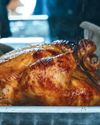
Who would have thought that a congealed lump of curdled milk could be so delicious? For 7,000 years, cheese has titillated the taste buds of humanity. In almost every corner of the world, animal milk has been used to create the stuff, culminating in over 1,700 distinct varieties today: creamy Brie; buttery Gouda; crumbly Parmesan; stringy mozzarella; sharp Cheddar; holey Swiss; mild paneer; smoky Bavarian Emmentaler… the list goes on and on. The staggering variety of cheeses is testimony to the creativity of cheesemakers throughout the ages, but their ingenuity plays second fiddle to the real stars of the show: the microbes. The several-hundred-strong ensemble cast of bacteria, fungi and yeasts bring life to a bland, salty lump of off-white curd. By digesting, or ‘fermenting’, the fats, proteins and milk sugars, they spew forth a complex selection of flavourful – sometimes smelly – molecules. Never has second-hand food tasted so good! But what is it that makes cheese so devilishly moreish?
The milky way
All cheeses start their lives as milk. Most animal milks can be used, including cow, buffalo, goat, sheep and even camel. The milk is first warmed to a temperature perfect for milk-loving microbes to flourish. Next, acid or rennet is added, possibly alongside some ‘starter’ bacteria. This causes the milk proteins and fats to coagulate together into ugly white clumps, ‘curdling’ the milk. These fat-laden ‘curds’ then float to the surface of the milky liquid, the ‘whey’. The curds can then be drained, removed and chopped into chunks, according to the type of cheese being made – walnut-sized blobs for soft cheeses, and small grains for hard cheeses.
This story is from the May/June 2021 edition of Very Interesting.
Start your 7-day Magzter GOLD free trial to access thousands of curated premium stories, and 8,500+ magazines and newspapers.
Already a subscriber ? Sign In
This story is from the May/June 2021 edition of Very Interesting.
Start your 7-day Magzter GOLD free trial to access thousands of curated premium stories, and 8,500+ magazines and newspapers.
Already a subscriber? Sign In

HOW TO MASTER YOUR METABOLISM
Ready to welcome a leaner, healthier you? It's time for a metabolic makeover. With a few simple, research-backed changes, you can supercharge your body's calorie-burning

A BLUEPRINT FOR ANTI AGEING
Science says it's time to rethink - and take control - of our body's age. Here's how to slow, halt and potentially turn back your biological clock

THE BROKEN MIRROR
Body dysmorphia - the all-consuming obsession with perceived flaws in our looks - is sweeping the globe. One in five young people is thought to be affected. What can be done and how is tech changing the way we see ourselves?

SCROLL REVERSAL
Losing days by endlessly scrolling on your smartphone? You're not alone. Perhaps neuroscience can help us beat the urge

Going back to the moon
ARTEMIS AND A NEW DAWN OF LUNAR EXPLORATION

SAD CLOWN PARADOX: WHY TEARS OFTEN LIE BEHIND THE LAUGHS
Mental health issues are common among comedians and performing is just one way they can self-medicate

INDOOR AIR POLLUTION: HOW COOKING CAN DAMAGE YOUR DNA
From roast dinners to scented candles, there are potentially harmful pollutants lurking in every home

FARM OF THE FUTURE
Join the BBC's Planet Earth III film crew and go behind the scenes in the city farm that's transforming fields into towers and running almost everything with robots

COULD ONE BOMB DESTROY THE WORLD?
How big a bang are arms manufacturers capable of creating?

THE THREAT OF DAY ZERO
Queues at public water taps could become normal. What can we do to avoid them?